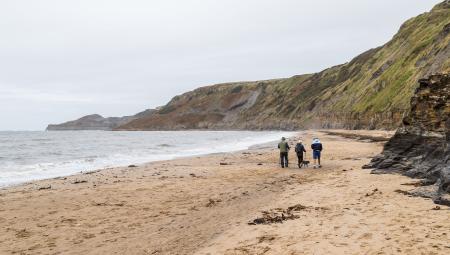Background
Our population faces significant future demographic challenges around ageing, which can be compounded by rurality and coastal poverty. This is particularly relevant in the last year of life, where people may be at risk of adverse outcomes due to structural inequities and resource-constrained health and social care services.
It is well known that healthcare institutions that are research active achieve better outcomes for their patients, and patients feel better informed and more satisfied with the care that they receive. There is evidence that this extends to research active hospices and people receiving palliative care. By building palliative care research capacity in the East of England, particularly for the more rural and coastal communities, we hope to address some of the healthcare inequalities experienced by these communities, to ensure that care and services best meet their needs.
In addition, coastal and rural areas are renown for being difficult to recruit and retain healthcare staff. Workforce literature has shown that research active institutions enhances the recruitment and the retention of motivated healthcare professionals, which may help mitigate this. High-quality palliative care is cross-organisational, with multiple agents working together to achieve a shared outcome for the patient. Current organisational research structures can prohibit collaborative working and are not always representative of the clinical pathways in practice. Applied research in palliative care needs to translate across organisational boundaries to fully realise its impact. Work is needed across the local health and social care system to understand current research capacity and the barriers and facilitators of joint research delivery, in order to enhance future capacity.
Project Aims
To understand the current capacity for, barriers and facilitators to palliative care research in the Coastal areas of East of England. Our objectives consist of:
- To review the existing evidence on capacity-building activities and the needs of coastal communities
- To work with patients and coastal HSC organisations to grow meaningful community engagement and involvement networks
- To inform a larger grant application aimed at increasing the capacity and quality of palliative health and social care research that is inclusive and representative of rural and coastal areas.
- Longer term aims include obtaining funding to establish coastal research collaboratives (research excellence hubs) in PEoLC HSC research.
Project Activity
- Rapid literature review to understand known barriers and facilitators to clinician research engagement, and existing capacity-building activities, in order to ensure that the project is not duplicating efforts
- Online survey of palliative care professionals and researchers across the coastal areas of the EOE and using the data to inform future research strategies.
- Community engagement events for those affected by death, dying and bereavement (both interested members of the public and HSC practitioners) to understand their views on PEOLC research in coastal areas, which will also be used to help develop a more substantial grant application
Anticipated or actual outputs
Initial Outputs (6 months)
- Co-develop an NIHR Research for Patient Benefit application
- Short survey report (including lay summary)
- Co-create public and patients engagement and involvement capacity and structures for palliative care research
Longer term projected outputs
- Develop strategies to build a clear pipeline for clinicians interested in pursuing research, from early-stage support to grant application and project delivery.
- Use a relationship driven, place-based approach to build sustainable networks between partners and communities
- Develop a knowledge mobilisation strategy, so that our research is communicated in an accessible way, outlining a clear implementation pathway to creating novel methods that can be replicated elsewhere.
- Disseminate findings and strengthen our relationships with the nascent NIHR Palliative Care Incubator to champion the needs and challenges of clinical research in our rural/coastal areas
- Engage and disseminate our findings with EoE researchers and academic networks
- Deliver regional engagement events with the goals of sharing our findings
Who is involved?
- Dr Caroline Barry, Consultant in Palliative Medicine/Clinical Associate Professor, NNUH/UEA - PI/Corresponding researcher
- Dr Abigail Hensley, Consultant in Palliative Medicine, St Elizabeth's Hospice - Joint PI
- Prof Morag Farquhar, Professor of Palliative Care Research, UEA + Theme Lead, ARC PEOLC
- Dr Ben Bowers, Wellcome Post-Doctoral Research Fellow and Nurse Consultant in Palliative Care, Cambridge
- Dr Joe Sawyer, Consultant in Palliative Medicine, St Elizabeth's Hospice and Visiting Senior Research Fellow, Integrated Care Academy
Contact:
Dr. Caroline Barry, caroline.barry@nnuh.nhs.uk





